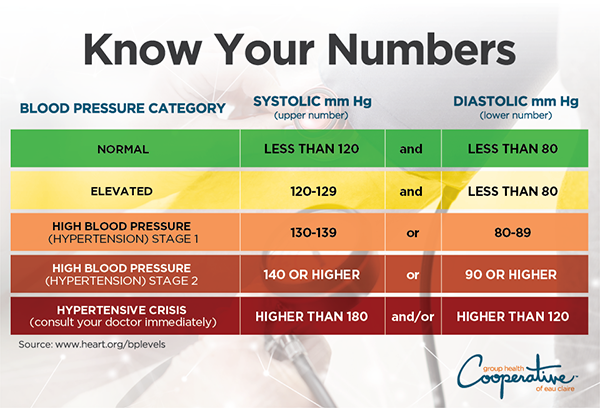Blood pressure measures the force of blood pushing against the interior walls of arteries as our heart pumps blood. This force is vital because it moves oxygen and nutrients throughout the body to nourish tissues and vital organs. Other essential blood pressure functions include transporting white blood cells, hormones, and insulin and transporting toxic waste products of our metabolism, liver, and kidneys that we expel with our breathing.
Blood pressure is measured using two numbers: The first number, called systolic blood pressure, measures the pressure in your arteries when your heart beats. The second number, called diastolic blood pressure, measures the pressure in your arteries when your heart rests between beats. When this pressure is too high, it can damage the arteries, heart, brain, kidneys, and eyes, resulting in heart attacks, strokes, and kidney failure. High blood pressure (hypertension) is commonly referred to as “the silent killer” because someone may have it and show no symptoms. Checking your blood pressure regularly is the best way to know if your numbers are in a healthy range. You can have your health care provider check it or even check it at home yourself if you have a blood pressure monitor.

Many people can lower their blood pressure or maintain a healthy range by making healthy lifestyle choices.
Here are some ways to keep your blood pressure in check!
- Check your blood pressure regularly.
- Get at least 30 minutes of physical activity a day, at least five days each week.
- Not using tobacco products.
- Eating a healthy diet, including limiting sodium (salt) and alcohol
- Keeping a healthy weight
- Managing stress
- If you take medicines for your blood pressure, make sure to take them every day.
To help prevent serious diseases such as stroke, heart disease, and kidney failure, being aware and controlling your blood pressure is important so that you aren’t causing unnoticed damage to your internal organs over a long period of time.
Written by: Coach Alex